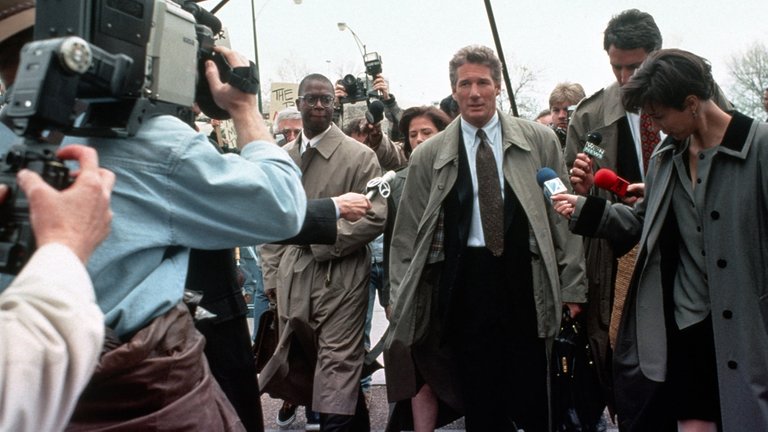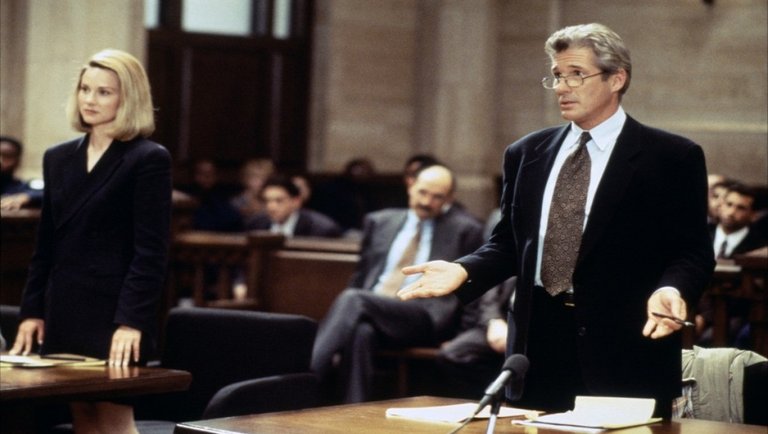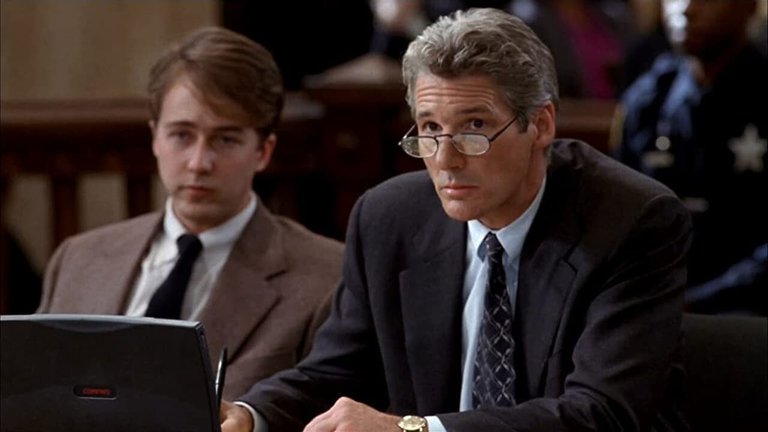
Source

Index
click on the desired section to move there directly

Introduction
Before I became an engineer, one of the careers I had thought about was that of a lawyer. I have always been fascinated by American films where a talented lawyer manages to exonerate his clients using various kinds of technicalities.
Many times this job is frowned upon by most people, especially when defending people accused of serious crimes such as murder or abuse of various kinds. One of the concepts that I have always found very fascinating is that of the presumption of innocence, which is that until a crime is proven beyond a reasonable doubt, then the defendant must be presumed innocent. And here many times this is not the case, because often due to various disinformation campaigns, public opinion is almost always led to condemn suspects prematurely, especially when the crime in question is very serious.
This is why I believe that everyone is entitled to a fair trial and a defense lawyer. Then of course it sometimes happens that innocent people are wrongly accused and guilty people are released for lack of evidence or whatever. But this in my opinion is a problem of the justice system, and should not be imputed to who is doing is job (whatever are her/his reasons to do it).
'Primal Fear' is precisely about this, about a lawyer who decides to defend a person who seems guilty in every respect and who if it were not for his intervention would surely be destined for the electric chair.

Source
press here to scroll back to the index

The movie
Splinters of Fear, a true masterpiece in the judicial thriller genre of the 1990s, had the benefit of having launched the career a young Edward Norton, who was also making his acting debut, to the Hollywood stage. His performance earned him several prizes and almost earned him an Oscar. With a celebrity cast, a sophisticated and glossy mise-en-scène, and a hint of ominous atmosphere to spice up the plot, the movie is a classic example of courtroom cinema geared for the general public.
Up until about halfway through the story, things would seem fairly predictable. However, the revelation regarding the accused's psychological state started to sparkle and become more uncertain, and this continued until the epilogue's twist, which proved to be the ideal emotional and moral spectacle machine and caused the audience to reflect on the true purpose and meaning of justice. The love-hate relationship between the two competing attorneys, superbly portrayed with just the right amount of intense charm by Richard Gere and Laura Linney, is a good example of how justice is frequently a slave to the logic of power and personal ambitions. They are pawns in a larger game orchestrated by those you least expect.
Hoblit (the director) is able to keep the right level of interest up until the end credits. The aforementioned performance of Norton, who was outstanding in the dual roles of a shy stutterer and an overconfident bad boy capable of winning the audience to his side—in this case, the literal counterpart of the jury that finds the defendant guilty or innocent—deserves a great deal of the credit for the operation's complexity.

Source
press here to scroll back to the index

Morality and law
Picking up a little on the initial thrust of the introduction, I would like to speak again about the moral choice to defend 'alleged' criminals. Martin Vail is convinced that everyone has the right to have a lawyer defend them (more or less optimally depending on how much they are willing to pay, one might think a little cynically).
I find this concept very correct, but I also understand its implications. What happens if we manage to acquit someone and shortly afterward this person commits other crimes? Whose fault is it? Should we feel responsible?
The answer is not simple and probably has many facets.
At this moment, a parallel comes to my mind with the manga 'Monster' by Naoki Urasawa, in which a neurosurgeon decides to save the life of a child who has been shot, only to discover that the child has become a serial killer... most people would probably say that this is a completely different case, that he could not have known who that child would have become.
I can agree with that in part by following my instincts mainly, but if I have to reason with a clear head, I see a professional (whether a surgeon or a lawyer) doing his job to the best of his ability. Then we can reason about motives because many lawyers defend criminals for the money they are paid rather than for the moral duty given by their role.
But in my opinion, here the fault must necessarily fall on the judicial system that allows exonerating guilty people or imprisoning innocent people usually due to caveats and faults in the system, and not on those who do their job.

Source
press here to scroll back to the index

Plot
The murder of a prominent figure in the city of Chicago, Archbishop Richard Rushman, marks the beginning of the movie's plot. O one of his altar boys, the young Aaron Stampler, seems to have brutally stabbed him. The youngster, who is stuttering and timid, insists, however, that he is not the criminal the police are seeking, and even the attorney Martin Vail is convinced of this. But as he continues to look into the matter, he learns that there are several possible reasons why the youngster may have actually committed the murder. Martin will have to deal with other secrets, such as the possibility that Aaron may be innocent despite appearances to the contrary.
press here to scroll back to the index

Conclusion
A compelling movie with excellent attention to detail and lots of surprises. We believe that we have figured out how everything will turn out, who the villain is, and why he acted the way he did up to the very end. But Hoblit's conclusion will leave us all scratching our heads and questioning whether it is indeed feasible to trust a neighbor (as happened to Martin, who had blindly trusted his client in spite of everything). Edward Norton deserves a lot of praise for bringing to life a figure that is both fascinating and unsettling in his acting debut.
A totally recommended movie!!!
press here to scroll back to the index

Rating
My personal vote is:
8.0/10
press here to scroll back to the index

Farewell image and text separators, created by me with Canva